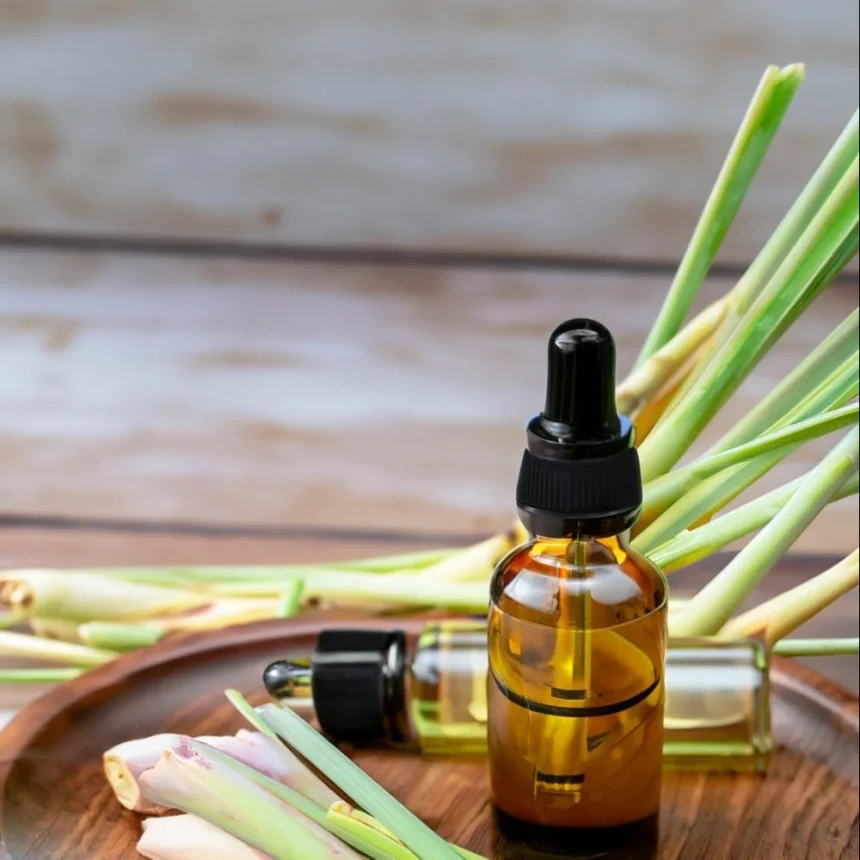Anxiety is one of the most common factors that prevent people from going to a dentist. Now, experts say that the aroma of lemongrass may alleviate dental patients’ anxiety and stress.
In a new study, researchers found essential oils extracted from lemongrass to be a simple, safe and inexpensive method that can reduce pain and anxiety in dental care.
The study is a randomized clinical trial investigating the effect of aromatherapy with lemongrass (Cymbopogon citratus) on anxiety levels and haemodynamic factors in patients undergoing scaling and root planning (SRP) procedures.
Dental anxiety is a widespread issue, affecting 40 to 75 per cent of patients, and it usually increases pain perception, and as a result, patients experience more severe and more prolonged pain during treatment. It can also lead to poor oral hygiene, periodontal problems, and tooth loss, and it also causes stress for dental teams.
Aromatherapy is a common complementary therapy that utilises essential oils to stimulate the sense of smell for therapeutic purposes, aiming to improve mental and physical health.
Various essential oils, including orange, chamomile, lavender, and lemongrass, have been investigated for their effects on dental anxiety.
Studies have shown that inhaling lemongrass (Cymbopogon citratus) essential oil can improve body pain and respiratory system infections and reduce cold and flu symptoms. It is also used in food, cosmetics, and traditional medicine for conditions like chest pain, high blood pressure, diabetes, and headaches.
Lemongrass essential oil contains bioactive compounds with antibacterial, antifungal, antioxidant, anti-inflammatory, pain-relieving, and soothing effects.
Previously, studies on mice confirmed the safety and non-toxicity effect of applying lemongrass essential oil on human skin.
The study was conducted at Shahid Sadoughi University of Medical Sciences in Iran. It involved 38 healthy adult patients (aged 25—50) undergoing SRP for the first time. They were divided into two groups after two patients were excluded.
Exclusion criteria included pregnancy, systemic problems, smoking, allergies, mood/olfactory disorders, and use of tranquillizers or analgesics.
Anxiety was measured subjectively using the Spielberger State-Trait Anxiety Inventory-State Scale (STAI-S) and objectively by monitoring blood pressure, heart rate, and oxygen saturation. Pain and treatment satisfaction were also evaluated post-treatment.
For the intervention group, four drops (0.2 ml) of lemongrass essential oil, diluted in 100 ml of distilled water, were applied to sterile cotton gauze around the nostrils and on the philtrum. The control group received four drops of distilled water on gauze (placebo). The aromatherapy continued for up to 35 minutes during the SRP procedure.
SRP, a common periodontal treatment, is often associated with pain and discomfort, which can exacerbate anxiety.
Previously, the participants were asked to refrain from wearing perfume/cologne on the day of the appointment and not to eat foods such as sausage, garlic or raw onion for 12 hours before treatment.
The researchers, in the study published in BMC Complementary Medicine and Therapies, reported that lemongrass aromatherapy significantly reduced systolic and diastolic blood pressure, heart rate, and STAI-S anxiety scores in the intervention group. In contrast, the control group experienced significant increases in postoperative systolic and diastolic blood pressure.
No significant differences were observed between the groups for blood oxygen saturation, reported pain levels, or treatment satisfaction.
A strong correlation was found in the control group: increased pain was linked to higher postoperative anxiety, and higher anxiety correlated with lower treatment satisfaction.
A high percentage of patients (94.7 per cent) in the aromatherapy group indicated they would want to use this method again in future dental treatment.
No patient showed an allergic reaction such as oedema, erythema or itching following the patch test. No patients were harmed during the study, and no side effects were reported.
The study concludes that inhaling lemongrass essential oil is beneficial for reducing anxiety and the associated haemodynamic changes in dental patients.
The anxiolytic effects are theorised to be related to components like citral, myrcene, and geraniol, which may interact with GABAA receptors.
The study acknowledges limitations, including the difficulty of blinding patients and dentists due to the distinct smell of lemongrass and a relatively small sample size due to extensive inclusion criteria.
The researchers suggested larger sample sizes, double-blind designs, and exploration of different aroma application methods to confirm and generalize these findings.
In addition, they said future research should consider larger studies to explore lemongrass as a mouthwash due to its antibacterial, antifungal, and anti-inflammatory properties to potentially reduce oral bacterial load in the mouth before the treatment of a gum disease.
Beyond just reducing anxiety, lemongrass aromatherapy has also been linked to a more positive patient experience in various dental procedures, from routine check-ups to more invasive treatments, suggesting a broad potential for application.
WATCH TOP VIDEOS FROM NIGERIAN TRIBUNE TV
- Relationship Hangout: Public vs Private Proposals – Which Truly Wins in Love?
- “No” Is a Complete Sentence: Why You Should Stop Feeling Guilty
- Relationship Hangout: Friendship Talk 2025 – How to Be a Good Friend & Big Questions on Friendship
- Police Overpower Armed Robbers in Ibadan After Fierce Struggle






